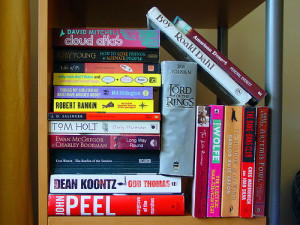Formula for Success?
Wouldn’t it be great if someone could tell you exactly how something should be written to be successful? Or does that take all the fun out of trying to figure it out?
Regardless, some researchers believe they have a lead on what it takes to write a best seller. They developed an algorithm to analyze and predict with an amazing 84 percent accuracy whether a project will be a commercial success. The key? Avoid cliches, say the computer scientists from Stony Brook University in New York in a study published by the Association of Computational Linguistics. Other factors that matter include “interestingness,” novelty, style of writing and an engaging story line.
What they’ve uncovered isn’t exactly a new formula, but it does confirm what English teachers and editors have been preaching all along: show don’t tell. Less successful books relied heavily on words that explicitly descriptive of actions and emotions such as “wanted, promised, cried, cheered,” while more successful ones turned more toward verbs that describe the thought process such as “recognized” or “remembered.”
Of course it is still not too easy. Knowing what to do isn’t always enough. The research revealed that there is, not surprisingly, an element of luck involved.



